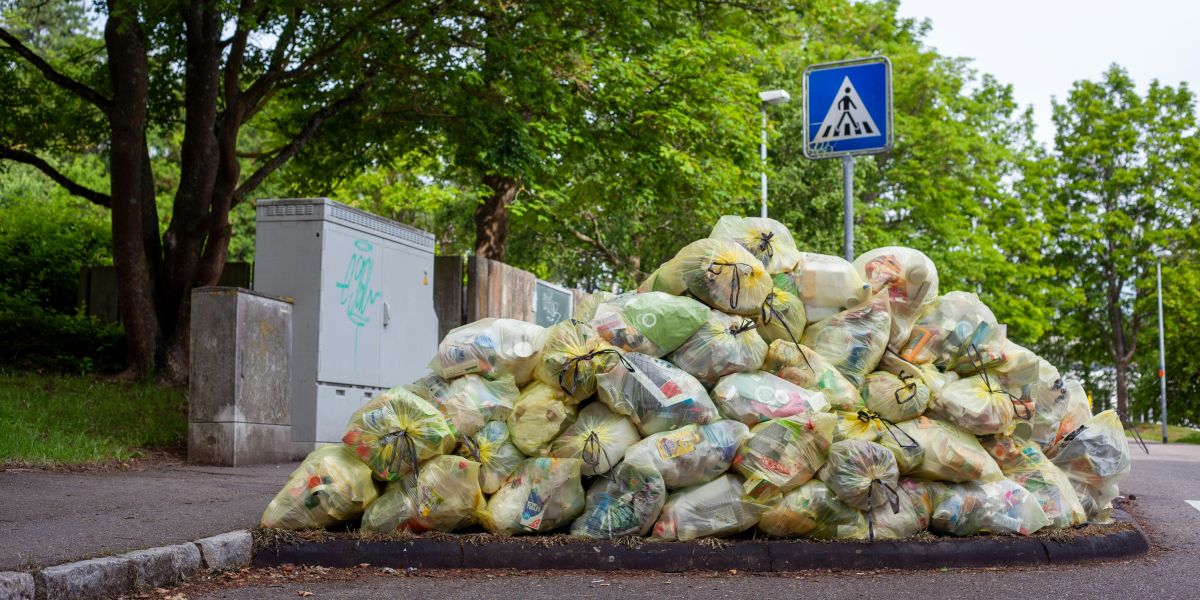Large-scale agri-food waste dumps represent a significant gap in resource management by humankind. We throw away hundreds of millions of tonnes of food. Beyond the notable social and economic implications, this substantial quantity of food waste contributes to environmental challenges, including climate change and resource depletion concerns. Once in the landfill, the decomposition process releases enormous quantities of methane, a problem that extends beyond groundwater and atmospheric pollution. Methane has been found to have 25 times the heat-trapping potential of carbon dioxide over a 100-year period, highlighting the importance of accelerating food waste recycling initiatives.
Through food waste recycling, we could potentially reduce an estimated 170 million metric tons of carbon dioxide equivalent, comparable to the CO2 emissions from 42 coal-fired power plants. To explain further, landfill decomposition of food occurs in an anaerobic environment (without oxygen), which tends to release methane emissions. While methane is more potent than carbon dioxide in trapping heat, it typically has a shorter atmospheric lifespan. Diverting waste can help mitigate these emissions, potentially contributing to a more stable global climate. Additionally, the resources invested in wasted food, such as water, energy, land, and labor used in production, processing, and transportation, are often lost. Recycling food waste offers a way to return these resources to the circular economy.
Beyond limiting greenhouse gas emissions, food waste recycling provides several environmental benefits, including reducing the need for new landfill sites, which can have ecological and social drawbacks. When food waste is recycled through composting or anaerobic digestion, it can be transformed into nutrient-rich soil amendments that may improve soil health and lessen reliance on landfills. This approach also supports agroecology. Furthermore, anaerobic digestion can generate biogas, a source of renewable energy that might be used for electricity, heat, or even vehicle fuel. This energy loop aligns with sustainability goals on a broader scale.
Food waste recycling also offers economic advantages. For municipalities and businesses, diverting food waste from landfills often leads to lower disposal fees, as recycling organic waste tends to be more cost-effective than landfill disposal. Establishing recycling systems can also create job opportunities in collection, processing, and the distribution of recycled products. Households may also benefit, as reducing food waste could lower trash collection costs. These economic incentives encourage broader participation and investment in recycling infrastructure.
Given these potential benefits, many communities and organizations have begun promoting food waste recycling. In Canada, several initiatives are underway, ranging from municipal green bin programs to larger-scale industrial solutions. Food waste recycling companies and other agencies and organizations are at the forefront of this movement, developing new technologies and services to assist households, businesses, and institutions with participation. Some provide specialized collection services and composting facilities, while others focus on advanced anaerobic digesters or small on-site processing units for commercial kitchens. These efforts play a key role in transforming an environmental challenge into a valuable resource and advancing a circular food system.
In summary, food waste recycling is more than an environmental priority—it is also an economic opportunity and a step toward a more resilient, sustainable future. Recognizing the significant impact of wasted food and adopting recycling efforts could help reduce our collective carbon footprint, conserve resources, and repurpose waste into enriched soils and clean energy. Even small actions, like keeping food out of landfills, can create a ripple effect, positively influencing multiple aspects of our environment and economy.
Published by Jeremy S.


















